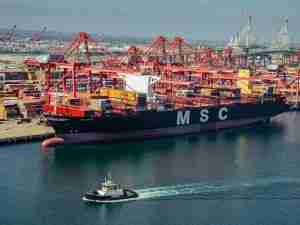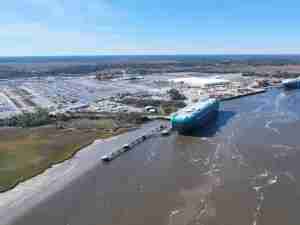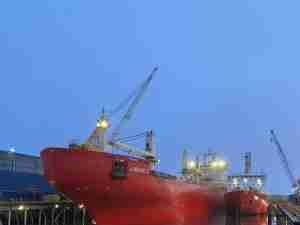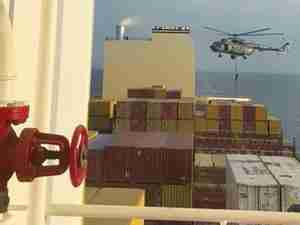Korean ferry operator relied on cargo as budget airlines took off
By: Reuters | Apr 29 2014 at 03:15 PM | Maritime
The operator of the South Korean ferry that capsized and sank this month with the loss of about 300 lives was apparently being squeezed by competition from budget airlines and had to increasingly rely on its cargo business.
The Sewol ferry sank on a routine voyage south from the port of Incheon to the holiday island of Jeju on April 16.
Investigators have not determined the cause of the accident but media has reported that the ship was overloaded with cargo and it may have been poorly stowed.
The ship was carrying 476 passengers and crew and had a capacity for 956.
The Korean Register of Shipping, which tested and certified the Sewol, stipulated that it should be loaded with no more than 1,070 tonnes of cargo and passengers combined.
It is not clear how much cargo it was carrying. Prosecutors have said determining the weight of the cargo is a key part of their investigation because of suspicion of overloading.
Financial records of the operator, Chonghaejin Marine Co., show cargo had become an increasingly important part of its income in the years since budget airlines stated winning over large numbers of travellers.
“Chonghaejin faced an uphill battle against budget carriers, which led to an shrinking number of ferry passengers,” said Kim Gilsoo, a professor in shipping management at Korea Maritime University.
“In contrast, increased shipments of agriculture products from Jeju island to Seoul led to increased cargo demand.”
Passenger revenue at Chonghaejin dropped 31 percent last year from the 2008 level, when competition from budget carriers was low, while cargo revenue jumped 64 percent in the same period, according to company filings to the stock exchange.
Cheap Tickets
The cargo business is the company’s biggest earnings generator, accounting for 60 percent of Chonghaejin’s total revenue in 2013, the filings showed.
Chonghaejin started services on the route from Incheon, near Seoul, to Jeju in 2003. But the number of passengers dropped for the first time in 2009, when budget carriers sharply the number of passengers they were carrying.
The cheapest budget air fare is 40,500 won ($39) for a one-way ticket to Jeju on a weekday. The ferry cost 71,000 won ($68)and took 12 hours longer than the flight.
The number of people going from Seoul to Jeju by plane jumped 72 percent from 2008 to last year, to 12.2 million. The number going by ship dropped 7 percent to 118,717, port and airport data showed.
The company reported a 785 million-won operating loss last year as it battled rising costs.
Chonghaejin chief executive Kim Han-sik appeared to the prosecutors’ office for investigation.
Reuters made calls to several company officials but no one was available for comment.
The Korea Shipping Association (KSA) and coastguard, which are responsible for checking ships are meeting cargo loading and stowing guidelines, are also being investigated.
The KSA, whose head offered to resign at the weekend, declined to comment, citing the investigation.
The Sewol’s captain and other crew have been detained on negligence charges. Lee was also charged with undertaking an “excessive change of course without slowing down”. (Reuters)











